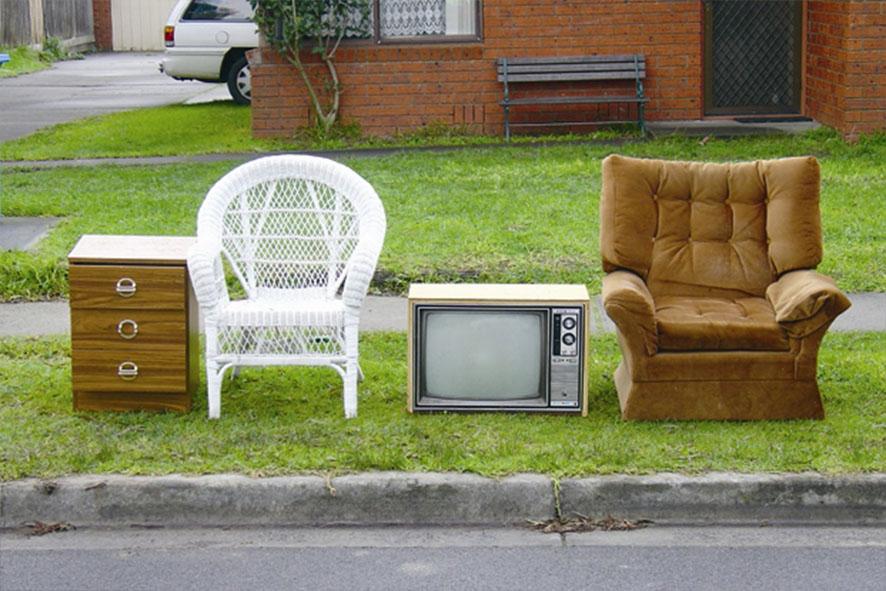
Manningham is home to a range of native plants and sites of environmental significance. Learn about the plants and ecology in your local area and how you can help preserve them.
Learn about the most common plants and ecology found in Manningham, and how you can help preserve them....
Manningham is home to a range of native plants and sites of environmental significance. Learn about the plants and ecology in your local area and how you can help preserve them.
Managing our trees is essential for maintaining the health and wellbeing of our community and surrounding environment. Find out about our street tree planting program, how we manage our trees and how to request a new street tree.
Keep up to date with our latest environment and sustainability events.
Confused about what (and where) you can recycle your household waste and other items?
This free face-to-face presentation is designed to you explore ways of identifying and managing different waste streams in your household.
Nanna Anna will discuss the typical waste elements in a household including food, water, textile, energy, and Stuff; and showcase practical examples of effective waste management in each of these areas. Included in the presentation is a waste audit checklist you can use at home, and ideas on how to implement different management strategies.
Registration is required and spots are limited.
If you are conducting works or events on or near the road, it is important to ensure that:
If you are planning to conduct works or events that’ll impact traffic on our roads. This includes impacts on pedestrians, cyclists and general traffic, you will need to ensure that:
You will need our consent if you require traffic control devices such as bollards or signage to manage traffic around your works or event.
Works managers working for utility companies and public transport operators are pre-authorised to erect traffic control devices and don’t need our consent under traffic management regulations.
Submit your application at least 10 business days before your planned works. This lets us process your application on time and also allows us to review and amend an application if required.
Fees apply for all applications.
After receiving your application, we will review your Traffic Management Plan and provide you with an invoice listing your payment options.
To apply for consent you'll need:
Depending on your proposed traffic management and the impact on the road network, you may also need other documents, such as a detour plan or aftercare plan.
If your works or event impacts a Department of Transport (DoT) arterial road or requires major traffic control devices we can’t authorise, you’ll also need a Memorandum of Authorisation from DoT. You can find more info on DoT’s website.
We will require confirmation DoT has approved any traffic management on their roads.
After preparing your application, send the completed form with all necessary documents to us via email.
This application is only for consent to erect temporary control devices. Depending on your works, you might need other approvals.
Allow 10 business days for us to review your application and for any amendments that may be necessary. We will contact you if we need further information or amendments to your application.
Contact us to cancel your application.
View all our services to help you dispose your unwanted items, learn how to recycle and more.

Looking to get rid of large unwanted household items. Find out what we can collect.
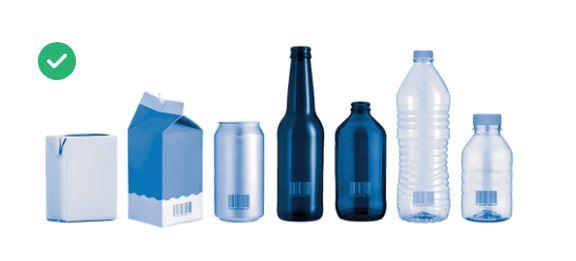
Victoria’s first Container Deposit Scheme (CDS Vic) is now operating across Victoria, including sites in Manningham.
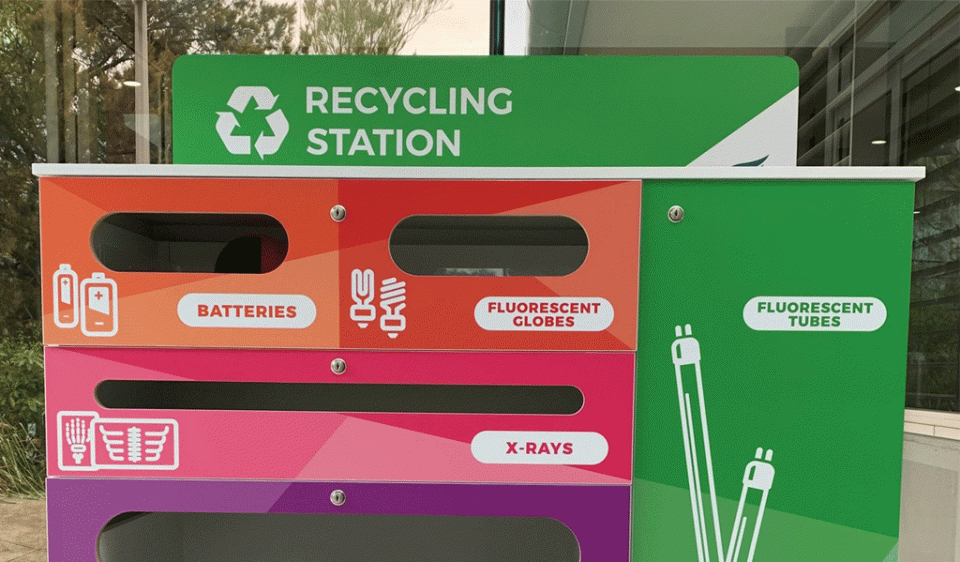
We've installed mini recycling stations so you can recycle common household items that cannot go into your bins.
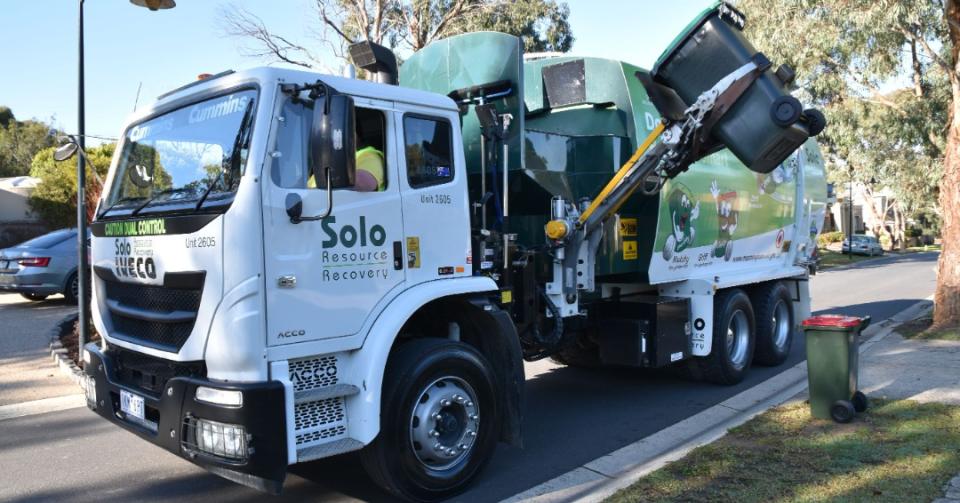
View a list of our closest transfer stations (tips) and recycling centres.
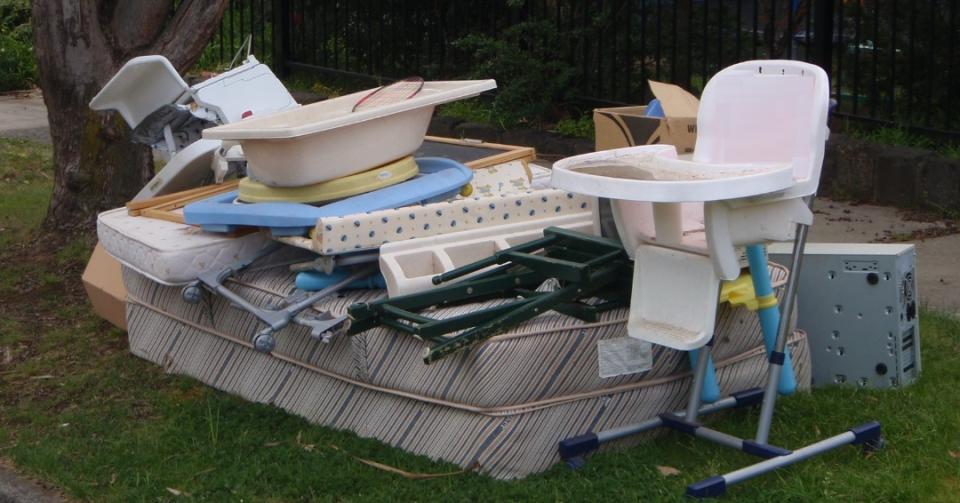
Find out how to dispose of your unwanted items using the Alphabetical listing
This document sets out how we manage Manningham’s local road network, including more than 686 km of local roads, 912 km of pathways, and 980 km of kerb and channel.
The Plan is guided by the Road Management Act 2004 and aligns with our broader asset management and financial strategies.
Focus areas:
We manage local roads, while the Department of Transport and Planning manage arterial roads and freeways. However, not all infrastructure within the road reserve on local roads is managed by us.
We use a four-tier inspection system:
Maintenance is prioritised based on risk, usage, and available resources. Temporary measures may be used to mitigate risks until permanent repairs are completed.
To celebrate National Recycling Week, come along to our information session about all things waste.
Not sure what item goes into each bin?
Get confused about what can and cannot be recycled?
Would you like to know more about what is happening the in the waste industry?
Come along to our friendly session so we can answer all of your queries and dispel any myths!
Your Waste Calendar will be delivered differently this year – here’s what you need to know.
This year, you will receive your waste calendar within the June issue of Manningham Matters.
You’ll be able to simply pull out the insert, cut along the dotted line and place your calendar on your fridge or in a handy spot for easy reference.
As in previous years, the calendar will include your property’s bin day – along with tips for what can and can’t go in each bin and how to place them out for collection.
There are two calendars – which one is for my household?
Your new calendar is the same colour and area as your last year’s calendar.
There are no changes to the schedule, so you can stick to your usual routine.
In Manningham, your green lid food and garden organics (FOGO) bin is collected every week, while your yellow lid recycle and red lid garbage bins are collected every fortnight, on alternating weeks.
Our annual waste calendar can help you keep track of these collections throughout the year.
As in previous years, the calendar will include information about:
This new way of delivering your calendar within the Manningham Matters magazine is more cost-effective and efficient. It will help reduce unnecessary waste, while ensuring every household still gets this important resource.
If you misplace your magazine or need an extra copy of the calendar, don’t worry!
You can download your waste calendar online, or, collect a copy from:
Keep an eye out for your calendar in the middle of the June edition of Manningham Matters.
9840 9333 manningham@manningham.vic.gov.au
Managing our trees is essential for maintaining the health and wellbeing of our community and surrounding environment.
We have over 90,000 street trees in Manningham and countless more throughout our reserves and natural areas. We strive to protect and enhance our tree population to benefit us now and our future generations.
Our tree management activities include:
Each year we plant up to 3000 trees throughout our streets and reserves. Our tree planting program is a critical part of future proofing Manningham against the negative effects of climate change.
Street tree planting is done between May and September each year. Timings may vary to make the most of planting conditions.
Manningham has been divided into 18 precincts. Species have been selected based on urban forest principles, biodiversity values, risk, and landscape amenity. The species palette, a selection of native and exotic trees, will establish the long-term character for a street or main road.
You can make a request for an additional tree on your nature strip or to replace a dead or damaged tree.
Requests for new trees can be made via the online form or by calling our Customer Service team on 9840 9333.
The site will be inspected by our arborist to determine if the location is suitable for planting.
If your request is approved, tree planting usually takes place during the following year’s planting season.
The type of tree will be decided by our arborist based on our Street Tree Planting Guide.
To celebrate National Recycling Week, we are hosting an online Q and A session about all things waste.
Not sure what item goes into each bin?
Get confused about what can and cannot be recycled?
Would you like to know more about what is happening the in the waste industry?
Come along to our friendly Q and A session so we can answer all of your queries and dispel any myths!
E-waste refers to any item with a plug, battery or cord that is no longer working or wanted such as:
Large appliances like fridges.
Small appliances like toasters and blenders.
IT, telecommunications and TV equipment like computers, printers and cables.
Lighting equipment like fluorescent lamps.
Electrical and electronic tools like drills and sewing machines.
Toys, leisure and sports equipment like hand held video games and battery operated toys.
No.
E-waste can contain hazardous materials such as heavy metals like lead, mercury and cadmium. These items also contain valuable materials which can be recycled and reused. Also the Victorian Government banned e-waste going to landfill from 1 July 2019.
Do not put e-waste in your bin, instead:
Check our How to dispose of your e-waste items
Find a local mini recycling station to drop off your smaller items
Book a place at our next Waste Drop Off Day event.
Find a local transfer station or recycling centre to drop off your items.
Did you know that the average Australian household increases its waste output by around 30 per cent during the festive season?
So how can you reduce your waste without missing out on the traditions you love, or creating a stack more work for yourself?
Join permaculture and sustainability educator, Anna The Urban Nanna, and learn how to make eco-conscious, sustainable decorations using upcycled and natural materials.
This free hands-on workshop touches on ways to decorate your home during the festive season without adding to the global waste crisis. Some homemade festive snacks will be supplied during the presentation, and you will take home what you make as well as instructions to continue crafting at home.
Registration is essential and spots are limited.
Please note: Due to limited numbers, this event is for Manningham residents only.
Manningham’s bushland is vital to the area’s character, health and identity, and is a haven for numerous native species. It provides a beautiful area for walking and being with nature. However, only a third of Manningham’s bushland remains, with the habitat quality reduced to a thin cover of eucalyptus trees. We are working hard to re-plant grasses and shrubs to improve habitat for the many native wildlife species that live in Manningham, such as koalas, echidnas and wombats.
Focus areas:
We acknowledge that embedding risk and building a risk culture is a journey. Our Risk Management Strategy provides the framework to handle risks and ensure the sustainability of our operations. Effective implementation of the Strategy will ensure top-down accountability, a risk-aware culture, integration into management processes, adequate resources, regular reporting, and continuous review.
Focus areas:
To help you remove garden waste to prepare for bushfire season, you can drop off either one car boot, station wagon, ute or a 6‘x4’ level trailer load of garden waste on certain dates throughout the year.
You need to live in a Bushfire Prone Area to use this service. We will ask you to show proof of residency (either a driver's licence or rates notice) at the check-in point on the day. If someone else drops off the garden waste for you, make sure you provide them with your proof.
Not sure if you live in a Bushfire Prone Area?
View our Bushfire Prone Area map to check or contact us.
If you are not eligible for this service or have excess garden waste to dispose, you can:
Need help? Contact us
✔ Branches
✔ Tree prunings
✔ Logs (maximum 250mm diameter)
✔ Large garden cuttings
✖ Soil
✖ Grass clippings
✖ Building material, bricks, steel or concrete
✖ Plastic bags
✖ Ivy, rose bushes or thorny material
✖ Bamboo leaves and stems
✖ Palm trees or branches
✖ Fence palings
You can drop off either one car boot, station wagon, ute or a 6’x4’ level trailer load of garden waste for free. There is a charge for any extra garden waste – see costs below.
| Garden waste load type | Example | Cost |
| Car boot | FREE | |
| Station wagon or ute | FREE | |
| Single trailer level – 6’x4’ | FREE | |
| Single trailer heaped – 6’x4’ (up to 1.1m3) | + $30 | |
| Single trailer high sides – 6’x4’ (up to 2m3) | + $50 | |
| Tandem trailer level (up to 1.25m3) | + $30 | |
| Tandem trailer heaped (up to 2m3) | + $50 | |
| Tandem trailer high sides (up to 3.65m3) | + $90 |
You can only pay by EFT on the day.
Due to high demand of this service, you can only book one timeslot per household each month. Bookings are essential.
Choose a date from the list below, select your preferred 30 minute timeslot and click ‘Register’ to finalise your booking. Each household is eligible to attend one time slot each month.
Disposal days will not proceed on a Total Fire Ban day or a day of Extreme or above Fire Danger Rating.
A one-day practical seminar visiting sites around Warrandyte that have had their local native vegetation restored using a range of techniques.
Join your land restoration guides, Alan Noy and Glenn Jameson on the land and for a short summary session in the study room.
They will take you on a local journey observing and discussing practical aspects of revegetation design, local vegetation patterns, choosing plants, maintenance, and long-term management of natural vegetation.
Visit sites where our community is attempting to reconcile the loss of biodiversity and learn how we can be part of that reconciliation process through the revegetation of the land.
Stuart Myers of Equiculture is delivering this two-part evening workshop on keeping horses and land healthy and happy.
The Equiculture program is loved by horse owners throughout Australia (and beyond!) as an evidence-based approach to keeping horses and land healthy.
Topics covered:
Please note: this is a consecutive two-part program, not the same program on both days. Participants must attend both evening sessions.
There is also a full-day workshop in Hurstbridge if you are unable to attend the two-part evening workshop.
Join Scott Hitchins as he returns to the Strathdon kitchen to create some of our, soon to be hot favourite, comfort dishes.
With a focus on low waste cooking, Scott will teach participants the techniques to create delicious winter warmers using every bit of what you grow or buy.
The focus in this session will be on using vegetables from the garden and an overview for slow style cooking that you can try at home.
You will be provided with a sample of what is cooked on the day and digital notes to try some of Scott’s recipes at home.
What to wear: Suitable clothing for getting your hands dirty in the kitchen and closed toe shoes.
What to bring: an apron (optional)
Who: Adults or teens
About Scott
Scott Hitchins has been working with sustainable, food-producing gardens for most of his life.
He has qualifications in biological science, permaculture design, education, and is a founding member of Werribee Park Heritage Orchard.
Scott has been providing popular workshops and garden-design advice to local councils, schools, and other community groups for many years.
He presents useful facts and skills in a fun and engaging manner. To quote Scott in a recent interview “Get me talking about sustainable gardening and you’ll never shut me up.”
Stuart Myers of Equiculture is delivering this full-day workshop on keeping horses and land healthy and happy.
The Equiculture program is loved by horse owners throughout Australia (and beyond!) as an evidence-based approach to keeping horses and land healthy.
Topics covered:
There is also a two-part evening workshop in Yarra Glen if you are unable to attend the full-day workshop.
Home Harvest Manningham is a monthly home gardening series to inspire you to grow your own delicious fresh food at home.
Gardens are the natural habitat for all types of insects – the good, the bad and the ugly.
Integrated Pest Management aims to manage pests using a mixture of physical, cultural, and biological control methods, with low impact chemical being used as a last resort.
This session will cover:
Food swap from 6.45pm, session starts at 7.00pm.
This event is part of our Inspired Living Series. This series showcases an exciting range of fun and sustainable activities and events for all ages, supporting sustainability at home, in the community and at work.
Keep up to date with our latest environment and sustainability events.